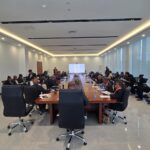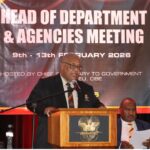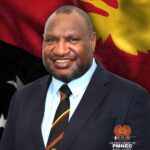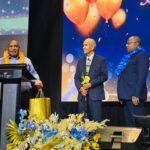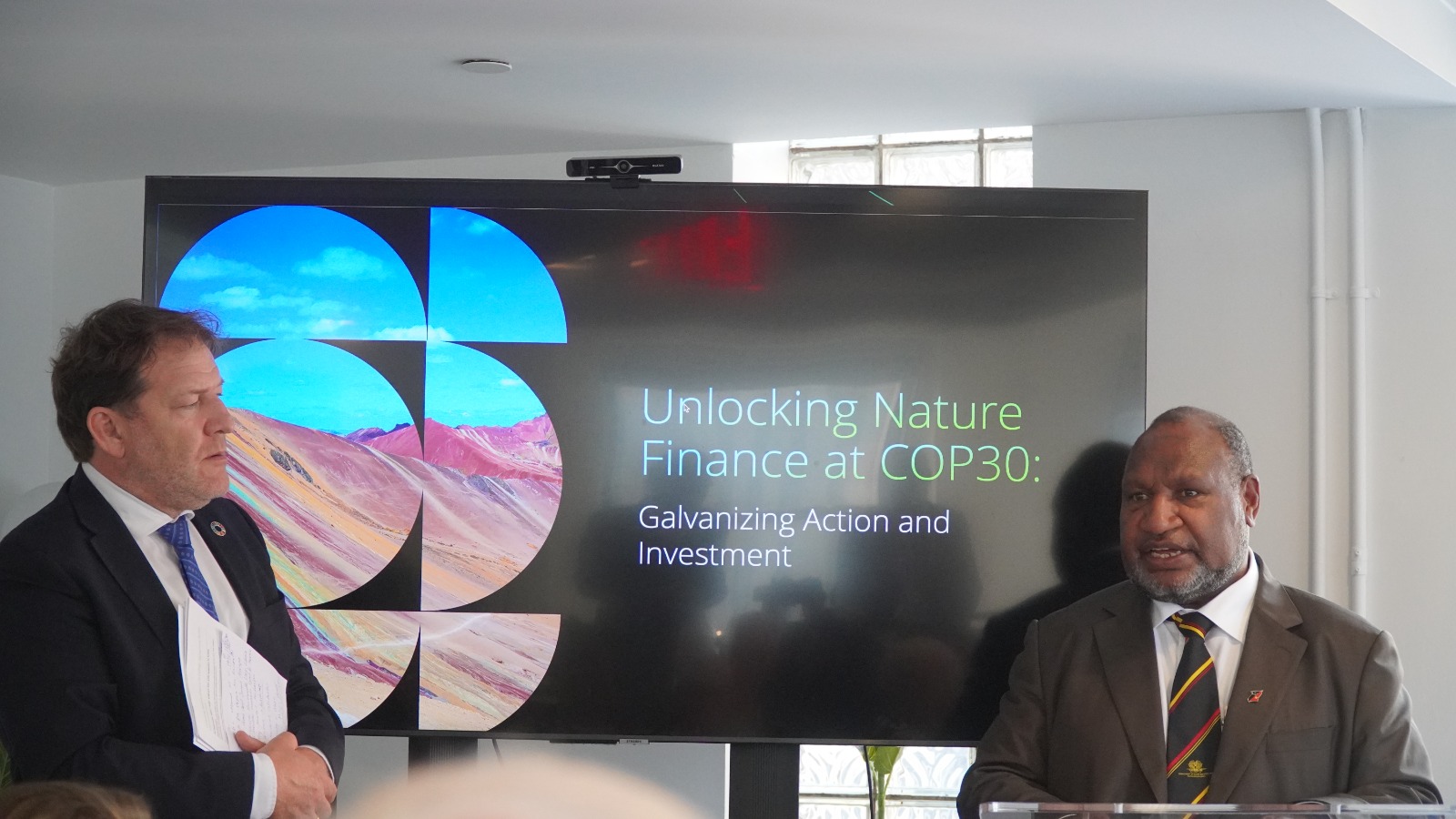Prime Minister Hon. James Marape has urged the international community to act decisively to protect the planet’s forests, oceans, and biodiversity, warning that humanity is “borrowing our children’s future” through unsustainable lifestyles.
Speaking at a high-level side meeting during the United Nations General Assembly on Unlocking Nature Finance at COP30, Prime Minister Marape addressed a gathering of environmental practitioners and partners focused on concrete action.
PM Marape drew attention to the uniqueness of Earth in the cosmos, stressing that no other planet could sustain human life. “Look 96 billion light years into the observable universe – there is no other planet like ours,” he said. “It does not matter what Elon Musk or others may pursue on Mars, we will never find another Earth. It is better to save this planet than to search for life elsewhere.”
The Prime Minister cautioned that human activity had pushed the Earth close to irreversible damage. “We live at a point in history where human impact on nature is at its maximum tilt,” he said. “If we do not reverse the way we live, our children and grandchildren will not inherit the same comfortable Earth that we enjoy today. We may one day be forced to carry bottled oxygen, just as we now fight over water.”
PM Marape anchored his message in faith, recalling the Book of Genesis and God’s command that humans act as stewards, not destroyers, of creation. “For thousands of years, that balance was maintained. It is only in the last 200 years that mankind’s footprint has caused major damage,” he said. “We must now take responsibility.”
He noted that astronauts who look back at Earth from space often experience what is called the “overview effect” – the sudden realisation of the planet’s fragility. “Neil Armstrong must have felt it in 1969 when he stood on the moon and longed to return to the only blue planet we have.”
The Prime Minister highlighted Papua New Guinea’s critical role as custodian of one of the world’s last remaining great rainforests and its vast marine biodiversity.
“Papua New Guinea is almost 80 per cent forested, and our coral reefs are among the richest on Earth,” he said. “Together with the Amazon, the Congo Basin, and Indonesia, PNG represents one of the final frontiers of tropical rainforest preservation. These forests are not just a PNG asset – they belong to humanity.”
PM Marape recounted how UN Secretary-General António Guterres, during his visit to PNG earlier this month, was “amazed” to witness the scale of the country’s intact forests after flying hours into the interior.
“Our forests and oceans are carbon sinks, oxygen producers, and biodiversity homes. To lose them is to lose balance on Earth itself.”
The Prime Minister explained PNG’s efforts to tax loggers, curb unsustainable harvesting, and dedicate up to 72 per cent of its landmass to permanent rainforest preservation. But he stressed that without global partnerships, the temptation for landowners to trade forests for quick cash would persist.
“97 per cent of our land is owned by our people. They want to protect it, but they are tempted by immediate gains,” he said. “We need investors and sponsors to work with us so that preserving forests becomes more valuable than cutting them down.”
PM Marape said PNG had already increased logging taxes to as high as 72 per cent before settling back to 48 per cent to deter exploitation. “We are serious about protecting our forests, but we need partners who will assist us in conserving this global asset.”
The Prime Minister concluded with a stark reminder of the stakes. “This is our one planet. If the balance is broken, we are not just losing trees or oceans – we are losing Earth itself. Across 96 billion light years of the universe, there is no other home for humanity. It is better to save this one.”


